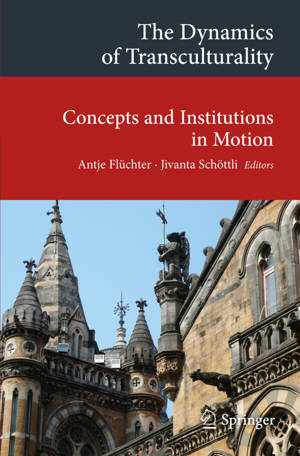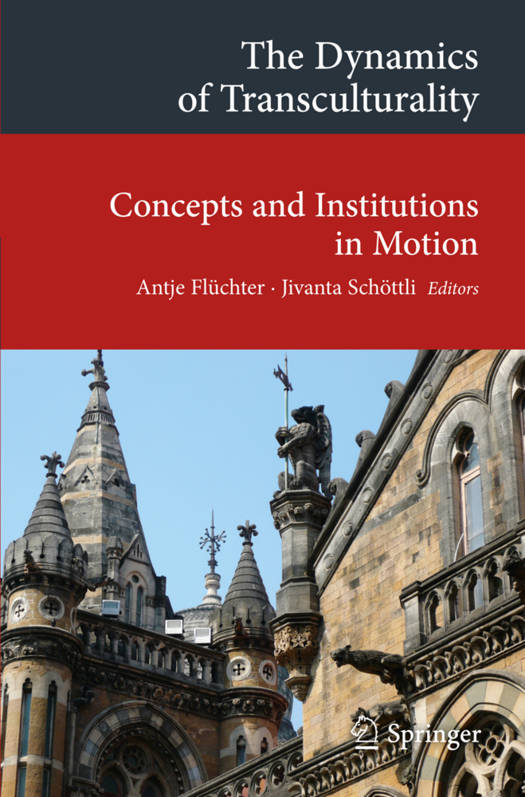
- Retrait gratuit dans votre magasin Club
- 7.000.000 titres dans notre catalogue
- Payer en toute sécurité
- Toujours un magasin près de chez vous
- Retrait gratuit dans votre magasin Club
- 7.000.0000 titres dans notre catalogue
- Payer en toute sécurité
- Toujours un magasin près de chez vous
The Dynamics of Transculturality
Concepts and Institutions in Motion
Description
The purpose of this volume is to identify and analyze the mechanisms and processes through which concepts and institutions of transcultural phenomena gain and are given momentum. Applied to a range of cases, including examples drawn from ancient Greece and modern India, the early modern Portuguese presence in China and politics of elite-mass dynamics in the People's Republic of China, the book provides a template for the study of transcultural dynamics over time. Besides the epochal range, the papers in this volume illustrate the thematic diversity assembled under the umbrella of the Heidelberg Cluster of Excellence "Asia and Europe in a Global Context." Drawing from both the humanities and social sciences, stretching across several world areas and centuries, the book is an interdisciplinary work, aptly reflected in the collaboration of its editors: a historian and political scientist.
Spécifications
Parties prenantes
- Editeur:
Contenu
- Nombre de pages :
- 277
- Langue:
- Anglais
- Collection :
Caractéristiques
- EAN:
- 9783319097398
- Date de parution :
- 18-11-14
- Format:
- Livre broché
- Format numérique:
- Trade paperback (VS)
- Dimensions :
- 156 mm x 234 mm
- Poids :
- 408 g

Les avis
Nous publions uniquement les avis qui respectent les conditions requises. Consultez nos conditions pour les avis.





